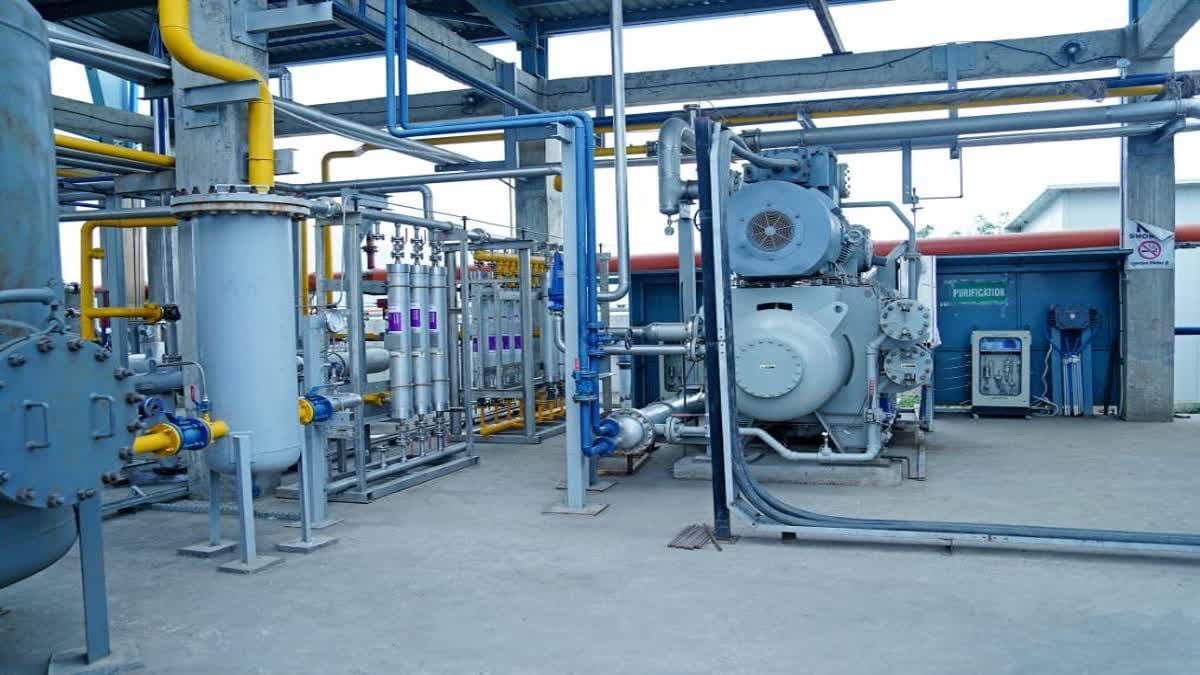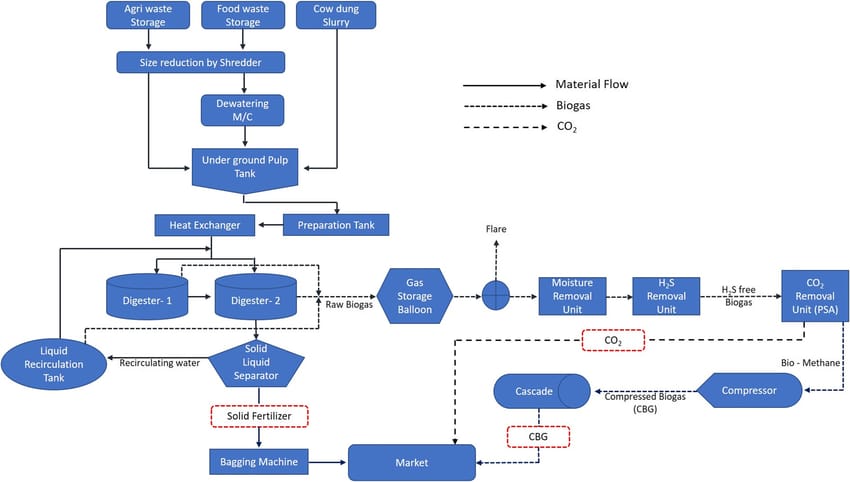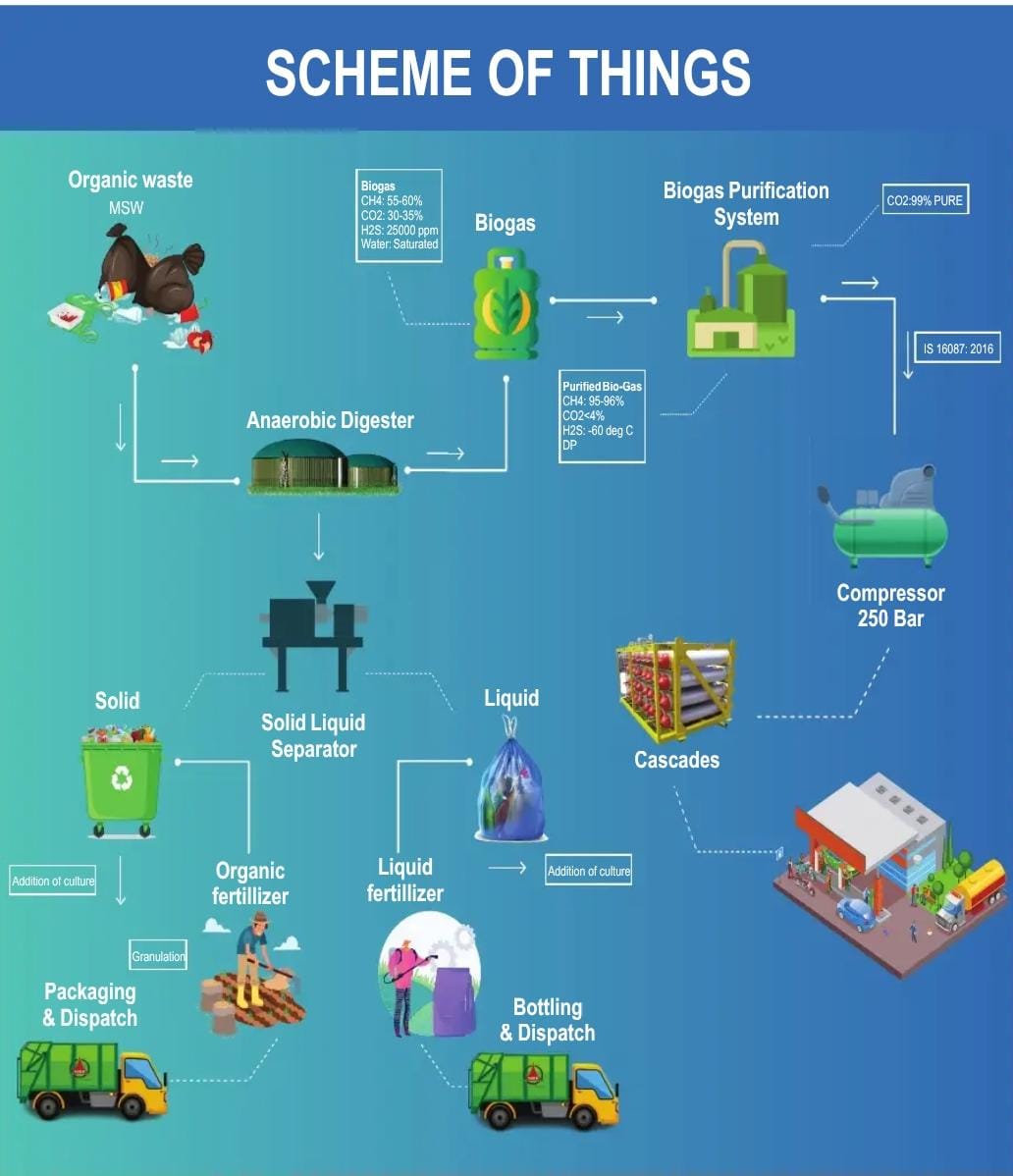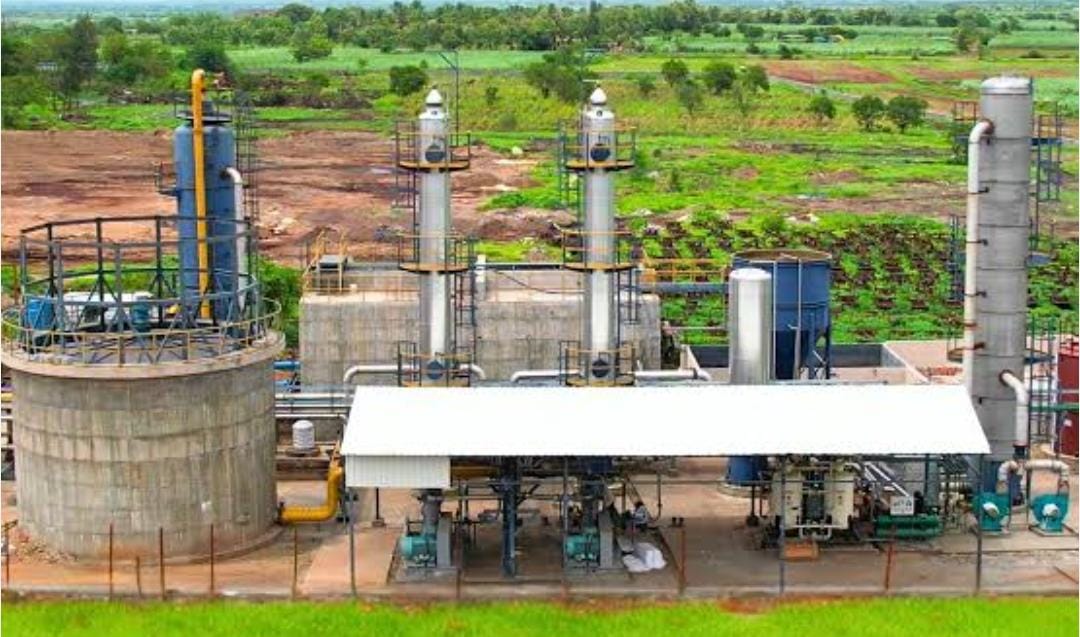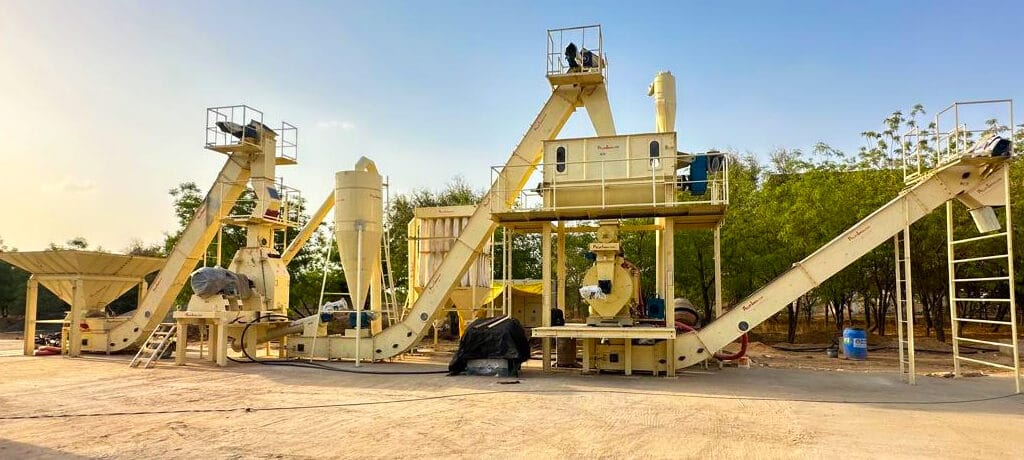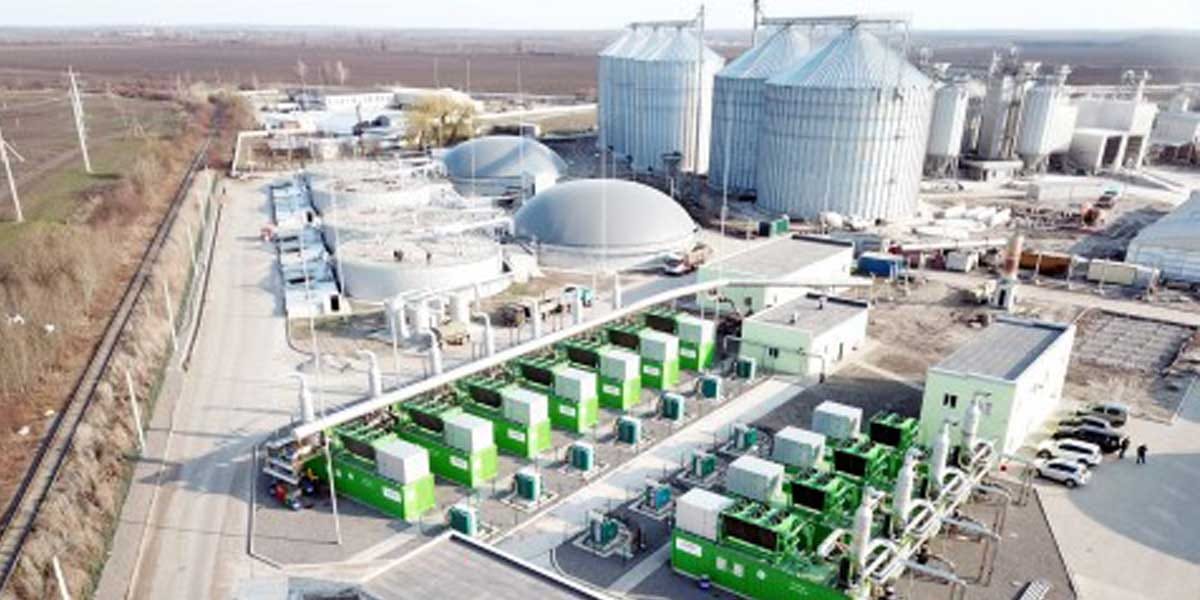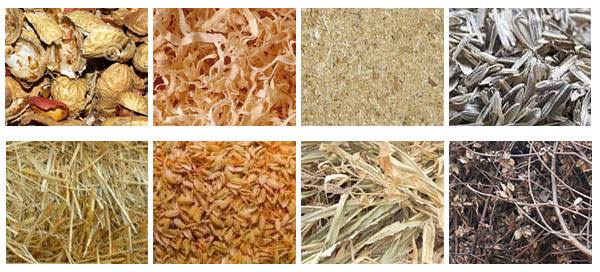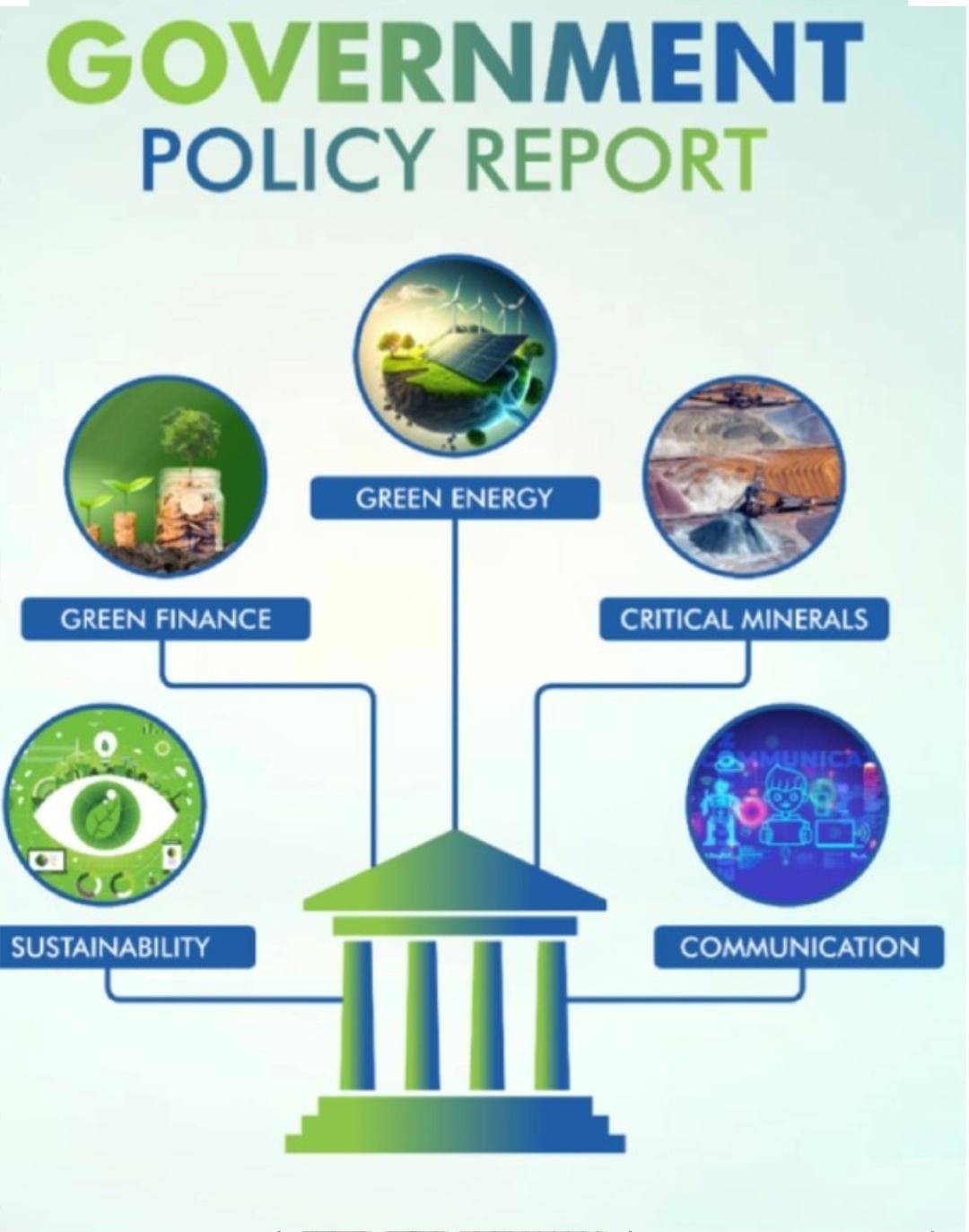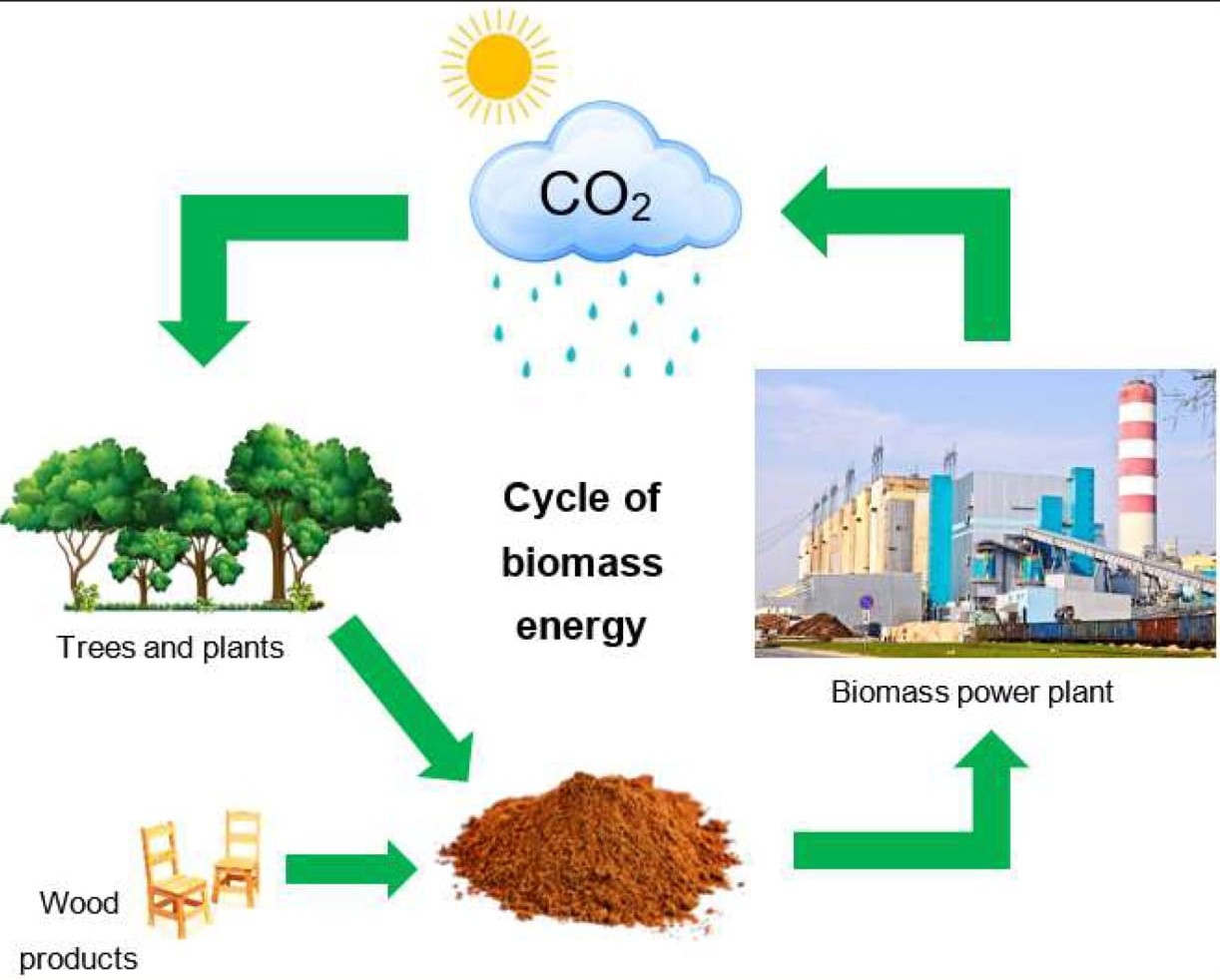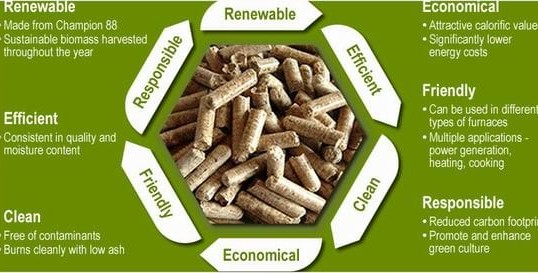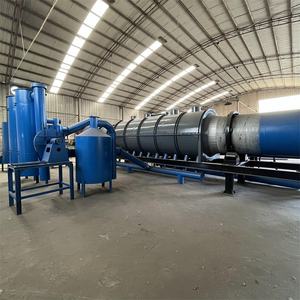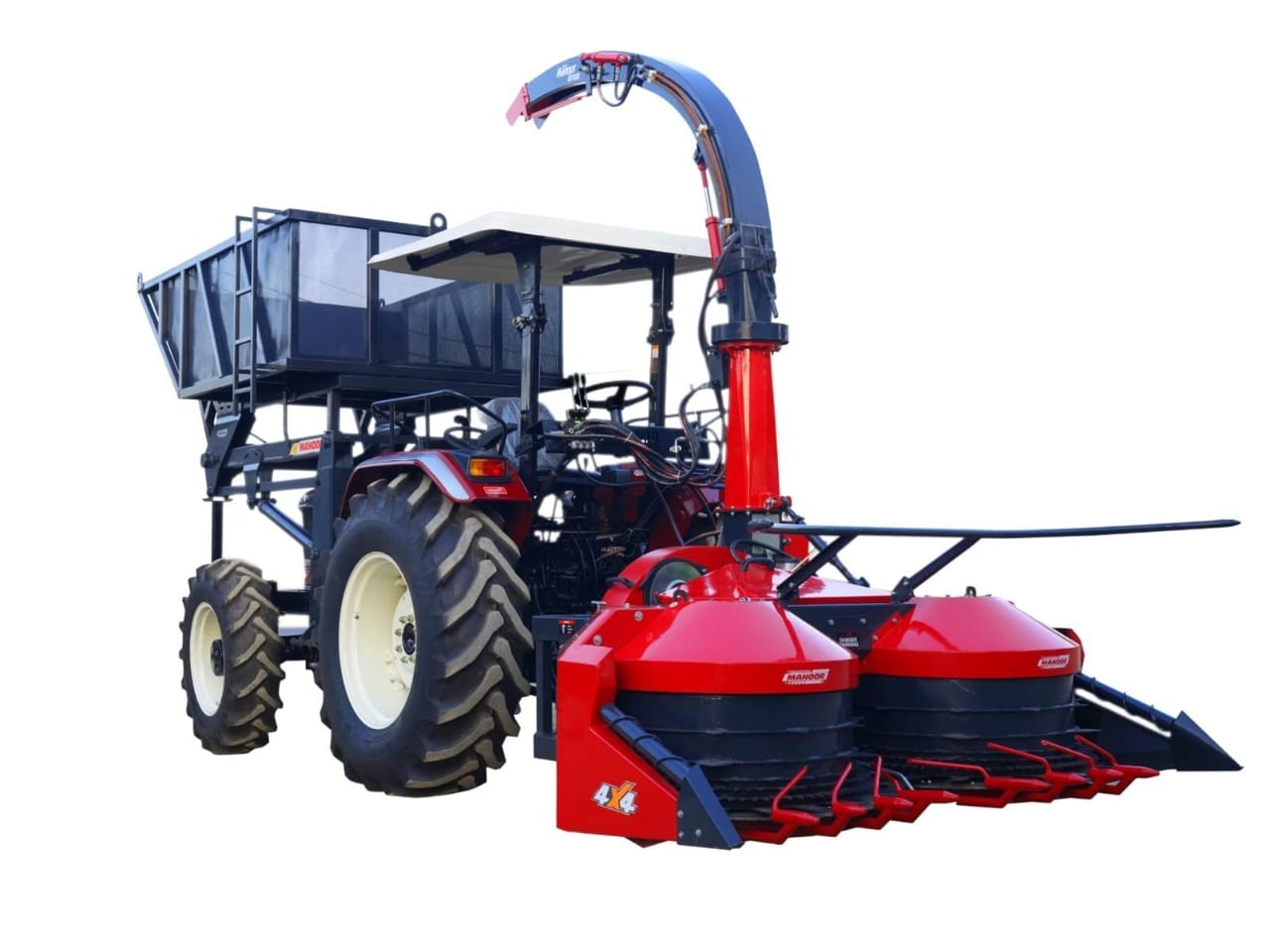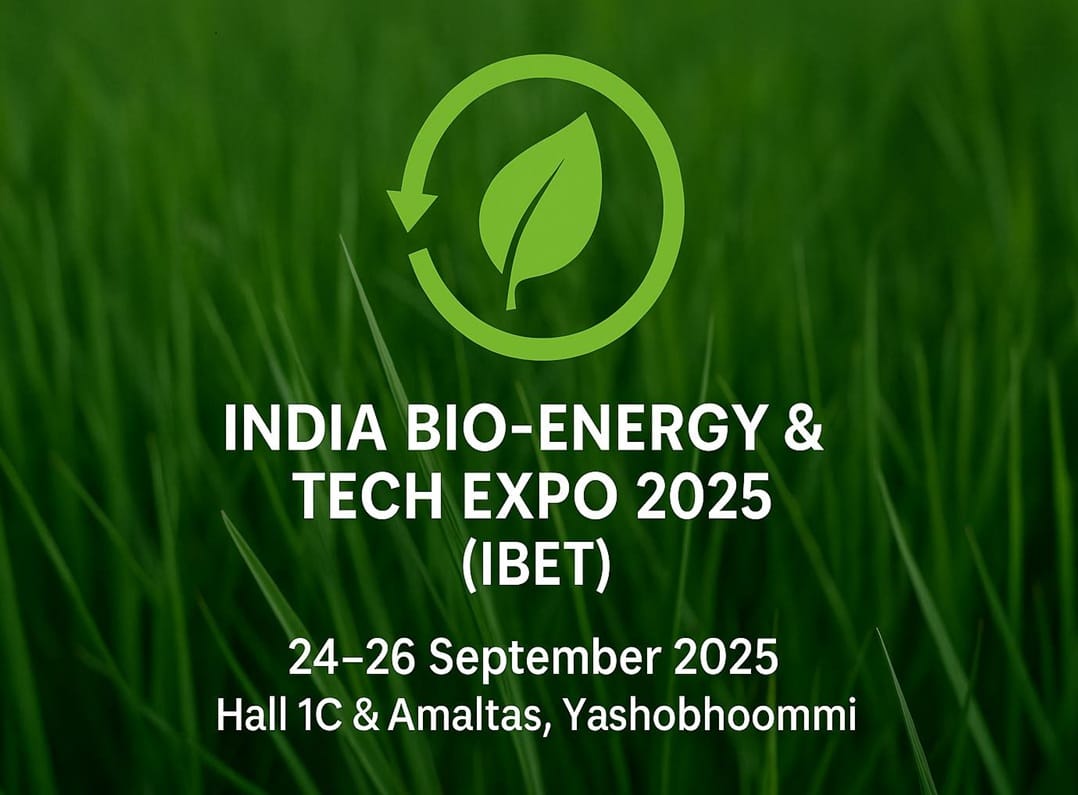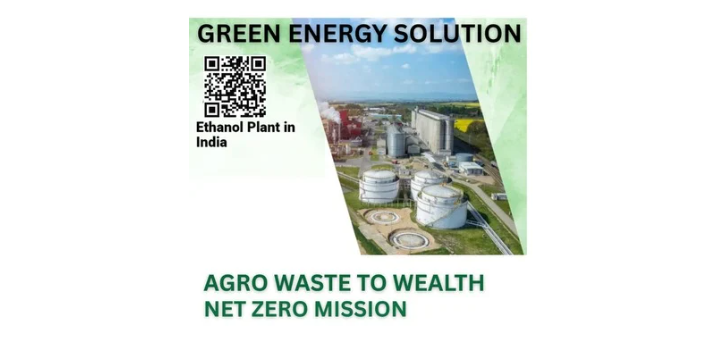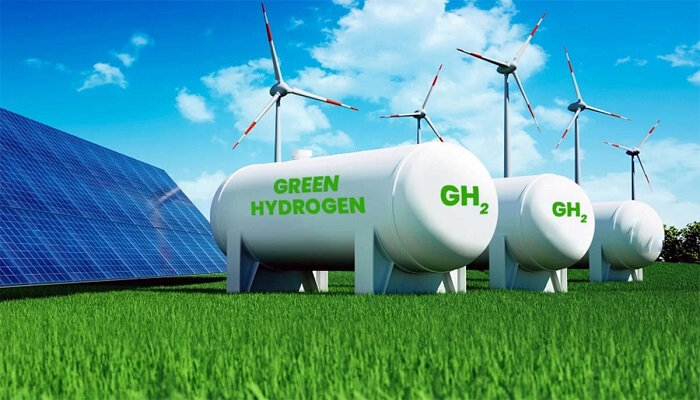CBG Plant Supplier
Description
A Compressed Biogas (CBG) plant is a facility that converts various organic wastes into a clean, renewable fuel with properties similar to natural gas. The process involves anaerobic digestion of feedstocks like agricultural residue, cattle dung, and municipal solid waste to produce biogas, which is then purified to remove impurities like carbon dioxide (\(CO_{2}\)) and hydrogen sulfide (\(H_{2}S\)). The purified biogas is then compressed for use as a transportation fuel or other applications
Raw materials for CBG plants are primarily organic wastes, including agricultural residues like rice straw and corn stalks, animal manure such as cow dung and poultry litter, food waste, the organic fraction of municipal solid waste (MSW), sugarcane press mud, and waste from sewage treatment plants. The selection of feedstock is crucial for plant success and depends on the energy potential of the material, with carbohydrate-rich materials yielding more biogas.
